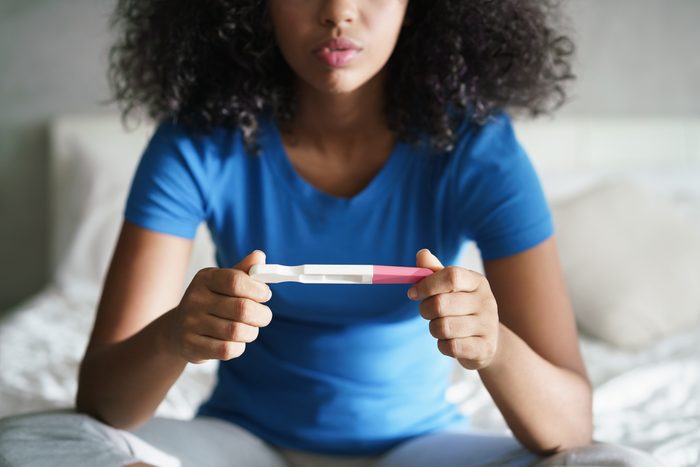
Why can’t I get pregnant?
Trying to get pregnant can be a challenge for so many different reasons. After ruling out medical problems tied to infertility such as endometriosis and PCOS, you might scratch your head wondering why you’re having difficulty getting pregnant. If you’ve been trying to conceive with little success, these common culprits may be to blame.
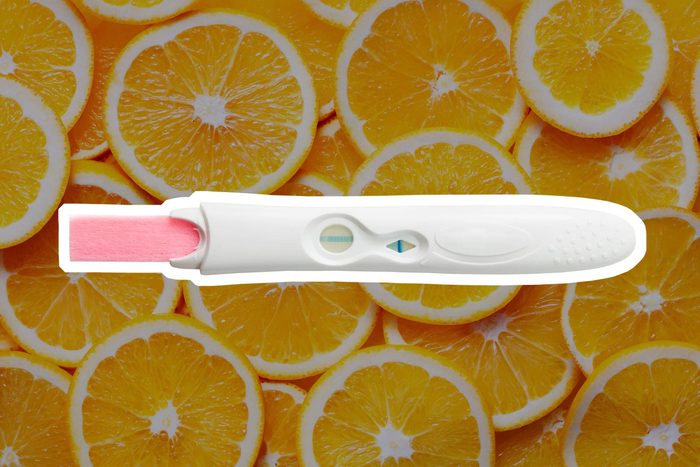
Your diet is lacking in the right nutrients
One of the easiest changes you can make to increase your chances of getting pregnant starts with the foods you’re putting on your plate. And this isn’t only true for women who will be carrying the baby—it’s also important for men. “Antioxidants are well known for fighting the free radicals in our bodies that cause cancer and other diseases, but they can also increase male fertility,” says Philip Werthman, MD, urologist and director of the Center for Male Reproductive Medicine and Vasectomy Reversal in Los Angeles, California. “There are many different sources of antioxidants, but among the best for sperm health are zinc, vitamin C, selenium, vitamin E, folic acid, and lycopene.” (Here are some antioxidant-rich fruits and veggies you can eat.) You can also take them in supplement form, which might even be better since it reduces the amount of sperm that become damaged. Dr. Werthman also suggests reducing soy intake, since men who eat high amounts of soy tend to have lower sperm counts than men who do not.
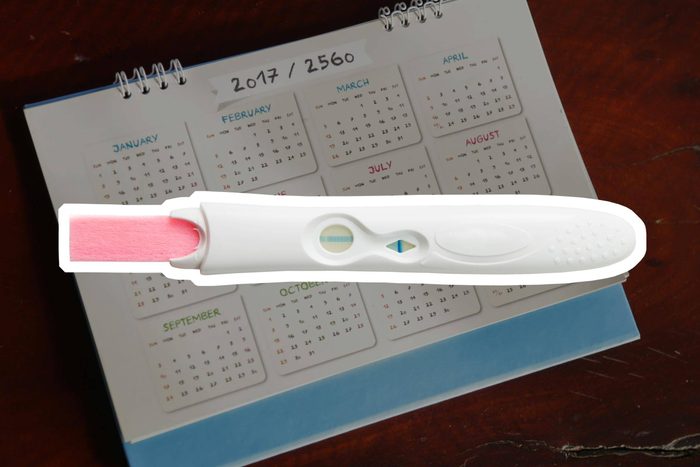
You have not been trying long enough
If you have spent years trying not to get pregnant, it can be surprising to realize that it actually can take some time. “Even in a 25-year-old couple at the peak of their fertility in life, the chance of pregnancy is approximately 20 percent per month,” says Anate Brauer, MD, attending physician at Greenwich Hospital and NYU Medical Center in New York City. “By the end of six months, about 60-80 percent of these couples achieve pregnancy and by 12 months about 85-90 percent of couples do.” The remaining 10 percent of couples, she explains, are likely to conceive within the following one to two years, however you should see a reproductive endocrinologist after 12 months of well-timed intercourse. Bottom line: It’s actually pretty challenging to get pregnant. If you’re having regular periods and have the timing right, Dr. Brauer suggests giving yourself a few months to try. (Here are some other surprising facts about fertility that ob-gyns wish you knew.)
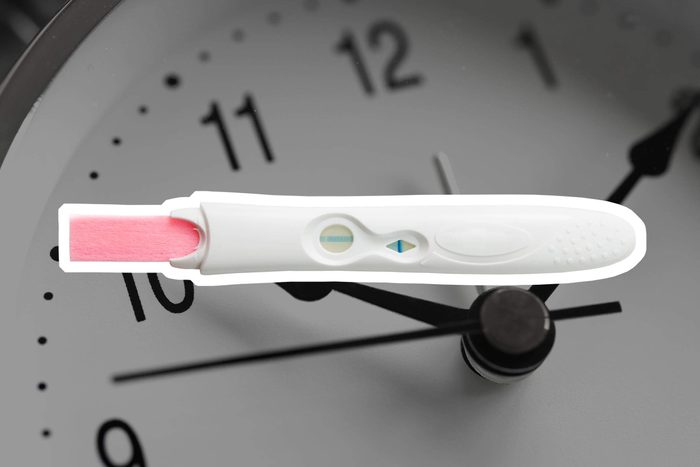
You are not getting the timing right
There is actually a relatively short window of time each month that a woman is able to conceive. “The ‘fertile window’ is generally described as a six-day interval ending on the day of ovulation, with the most optimal time to have intercourse within the three days ending with ovulation,” Dr. Brauer explains. “So, women who are monitoring with ovulation kits and waiting for the smiley face or their temperature to change could possibly be missing the most optimal time to conceive.”
If you have regular predictable periods, she recommends trying to figure out during which days each cycle you ovulate by using ovulation kits. Once you get a sense of when you ovulate each month, try timing intercourse a few days leading up to ovulation. For example, if you have a 28-day cycle and ovulate on day 14, have intercourse on days 10, 12, and 14. “If you are having a hard time figuring out when you ovulate, see a reproductive endocrinologist, who can help guide you.”
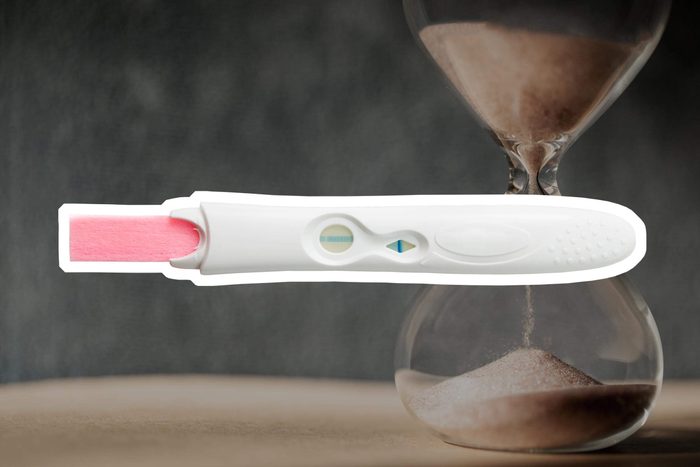
You’re relying too much on timing
While timing is, of course, important when you’re trying to conceive, it’s also important to try your best to keep baby-making as natural as possible.
“The emotional and psychological burden of trying to ‘time’ sexual contact is fraught with problems which cause unnecessary stress for the couple and ultimately can lead to marital strife when the lovemaking process becomes a chore instead of being pleasurable,” says David Diaz, MD, Reproductive Endocrinologist at MemorialCare Orange Coast Medical Center in Fountain Valley, California. “Women with regular cycles ovulate predictably between days 12 to 16 after starting the first period day.”
Better to put some romance in your baby making and eliminate the gadgets.
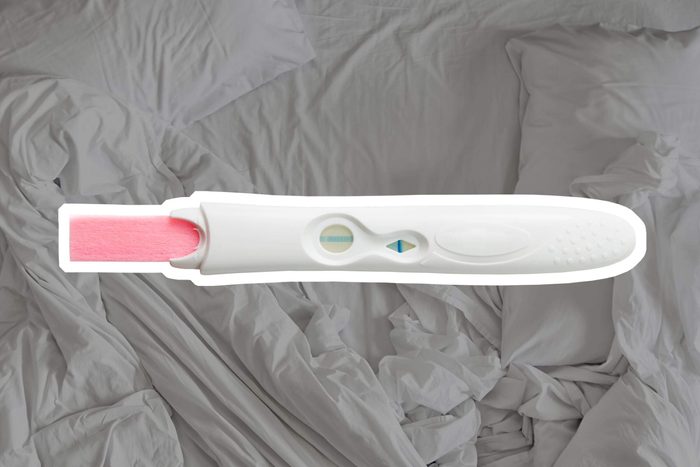
You’re not having sex as often as you think
Unless you’re keeping track—which, let’s be honest, isn’t the sexiest thing to do—it can be hard to determine how often you’re even having sex in the first place. While it’s true that there are only a few days each month that you can get pregnant to begin with, a man’s sperm can live inside of a woman for up to five days, which means she can get pregnant even when she’s not necessarily ovulating.
“Many couples believe they should ‘save up’ the man’s sperm until the most fertile days of the woman’s cycle but in reality, the complete opposite is true,” says Dr. Diaz. “Frequency of sexual intimacy, three to four times weekly, is the simplest way to increase the likelihood of increasing the odds of pregnancy.”
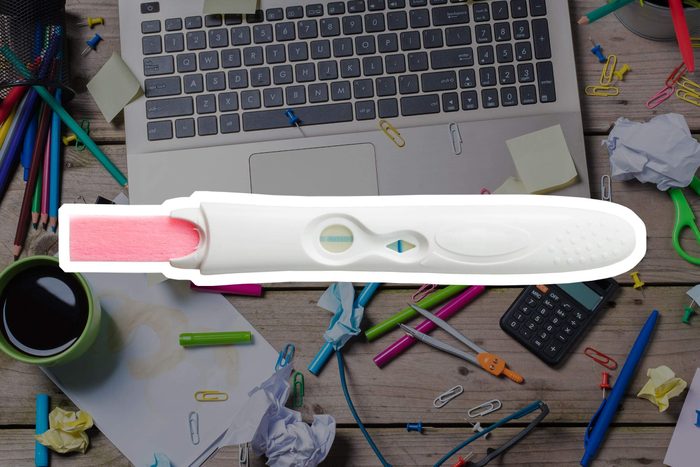
You’re under a great deal of stress
Stress affects many different aspects of fertility, explains Lynn Westphal, MD, medical advisor to Future Family and director of Fertility Preservation and Third Party Reproduction at Stanford.
“Specifically, it can affect the regulatory response of the hypothalamus, which can affect the natural hormones that are needed for ovulation,” she says. “Couples who are affected by high levels of stress often experience decreased libido resulting in decreased intimacy and chance of pregnancy.”
Some of the best things you both can do to keep your stress levels low include meditating, exercising regularly, trying acupuncture, getting adequate sleep and maintaining a healthy diet.
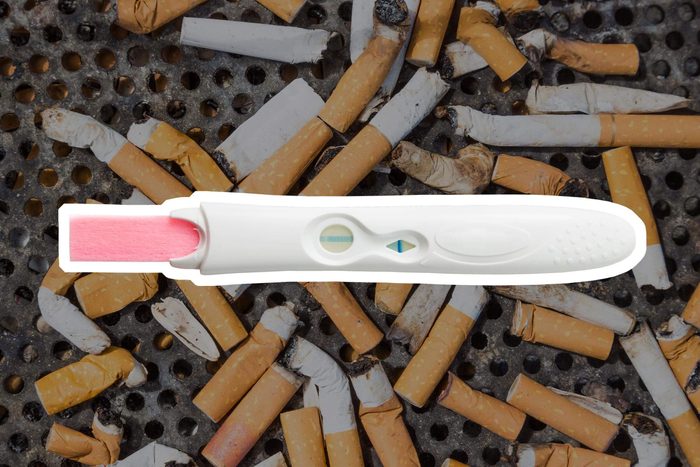
You’re a habitual smoker
Whether smoking tobacco or marijuana, each of these can lead to a decrease in the couple’s fertility. “Marijuana can lead to low sperm motility and diminished libido, thereby reducing lovemaking, and, if combined with alcohol, using marijuana can lead to more serious problems,” says Dr. Diaz. “Tobacco use causes multiple chronic lung, respiratory, and cardiovascular problems and for reproduction, the burning tobacco leaves and cigarette paper produces harmful chemical by-products which harm the delicate eggs leading to lower rates of fertilization and increased miscarriage rates.”
If you or your partner smokes, try your best to cut back if you want to increase your odds of getting pregnant. (Here are 23 ways to quit smoking for good.)
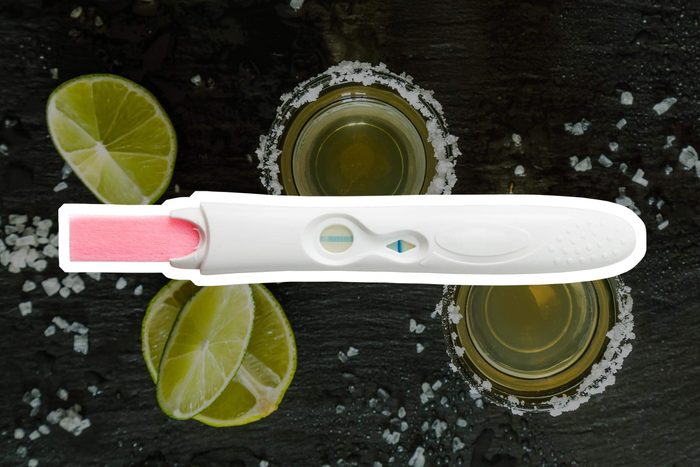
You’re knocking back too many cocktails
While the jury isn’t totally out when it comes to the connection between drinking too much alcohol and difficulty conceiving, 2015 research in Nutrients and other studies have found it to be true.
“This isn’t to say you must stop drinking altogether (one or two drinks per day is still acceptable), but heavy drinking can affect fertility, as well as your overall health,” says Dr. Werthman.
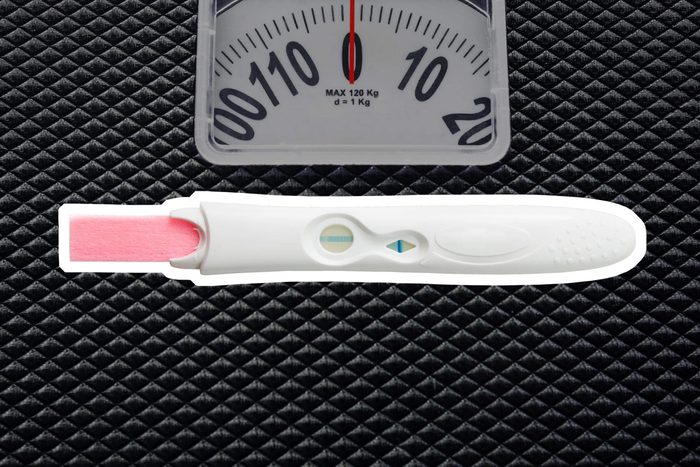
You are overweight (or underweight)
If you’re tipping the scales in a direction a little north (or south) of an ideal weight for your height, there can be an impact on your fertility. People who are overweight, especially if they are obese, can have problems such as irregular periods, lack of—or infrequent—ovulation, insulin resistance, pre-diabetes, high blood pressure, fatty infiltration of the liver, hyperplasia of the uterine lining, explains Dr. Diaz.
“Obese women also have much higher risks of a complicated pregnancy and even increased risk of newborn death,” he adds. In fact, one study, published in 2016 in Obstetrics and Gynecology, found that women with a BMI higher than 40 have a higher risk of infant mortality than normal-weight women. “The solution involves multiple variables beginning with informing patients of the risks, but also providing specific guidance for nutritional intake, exercise and managing emotional overeating,” says Dr. Diaz. “We employ a behavior modification specialist to help guide our patients use helpful tools to lower stress which often triggers overeating.”
Both men and women who are underweight also can have problems with fertility. Women can have a drop in estrogen that leads to irregular periods and a lack of ovulation, and men may have a reduction in sperm quality.
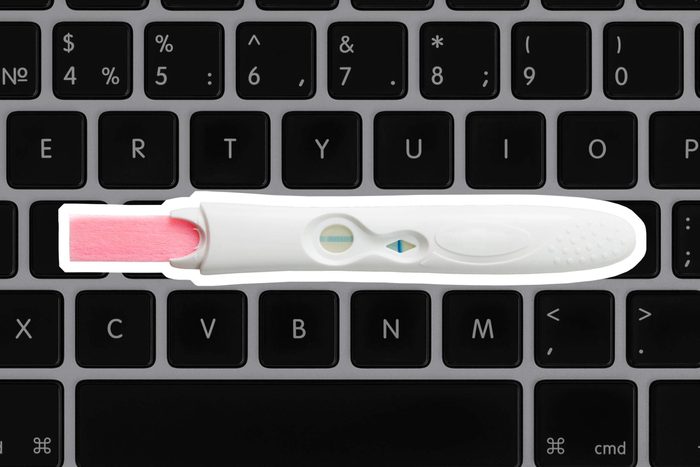
Guys, you’re letting your laptop sit on your lap too long
This one might sound like an old wives tale, but there’s scientific truth to it. High temperatures (specifically over 98.6°F and 37°C) can damage sperm. In fact, keeping things cool down there is part of the reason the testes are located outside the body. Dr. Werthman recommends protecting your sperm from harmful heat by keeping your laptop off your lap (on a desk is fine), staying out of the hot tub, and avoiding long hot baths.
A less obvious action that exposes the sperm to extra heat is sitting. “Staying in one position for a long time, such as at a desk working, raises the scrotal temperature,” he says. “This can be compounded by sitting with a laptop on your lap, which only produces more heat, so keep the computer on a desk and get up every so often to move around and cool things off.” Next, check out the early pregnancy symptoms you might miss.
